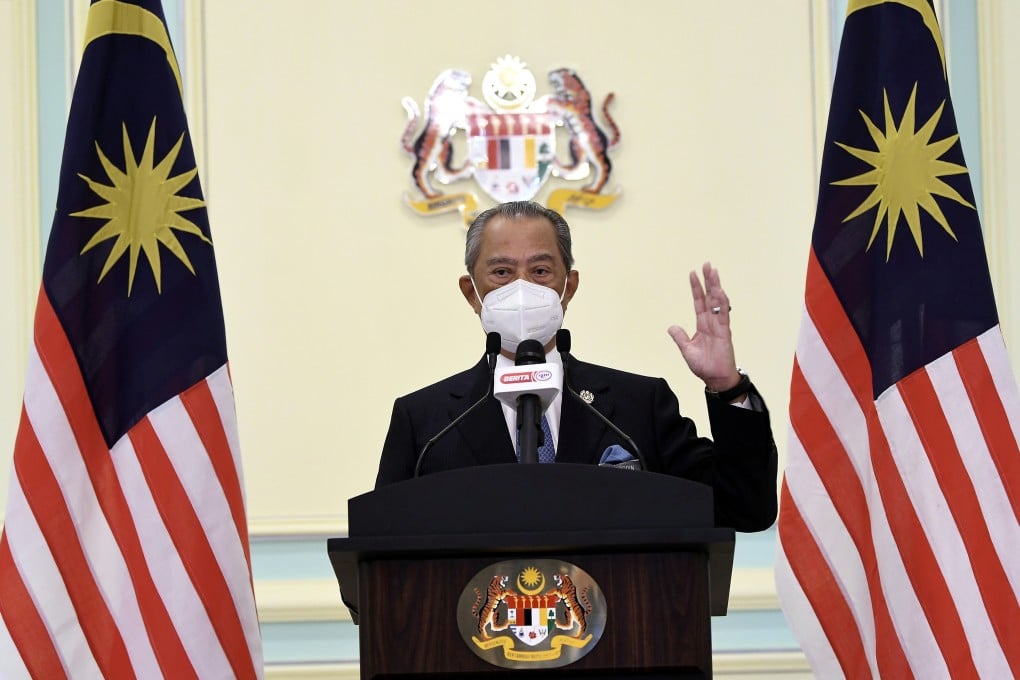Advertisement
Opinion | Malaysia’s political pendulum has already swung back to Umno. Is Muhyiddin next?
- The country has a new prime minister in Ismail Sabri, but its cabinet is mostly the same as Muhyiddin’s – signalling a return to conservative Malay politics
- The former premier’s position heading the National Recovery Council is another sign of his survival instinct. Don’t discount another bid for the top job
Reading Time:4 minutes
Why you can trust SCMP
4

From pandemic premier to pendulum politician, it’s as if Malaysia’s former prime minister Muhyiddin Yassin never left.
He survived numerous crises after being appointed to lead the nation in March last year, but barely two weeks after his resignation, Muhyiddin has made a comeback as the chairman of the country’s pandemic-related National Recovery Council (NRC). No matter which direction the government swings, it seems, it returns to where it has gone before.
Muhyiddin – who stepped down under repeated pressure from the king and Malaysia’s opposition, only to see successor Ismail Sabri Yaakob retain most of his cabinet – has successfully crafted for himself a historic and paternalistic role.
Advertisement
The NRC runs as a special committee in parallel to the cabinet and oversees the country’s management of Covid-19 as well as its recovery strategy. Muhyiddin’s position at its head is a new political coup that confirms both his influence and the return of the Malay-conservative formula built through the alliance of two coalitions: Perikatan Nasional, founded in 2020, and Barisan Nasional – led by the United Malays National Organisation (Umno) – which ruled uninterrupted for 61 years before the 2018 election.
Malaysians have been through another political crisis. Yet despite the expectation of a tectonic political shift that would see opposition leader Anwar Ibrahim finally becoming prime minister, the game has played out differently.
Advertisement
Advertisement
Select Voice
Select Speed
1.00x
